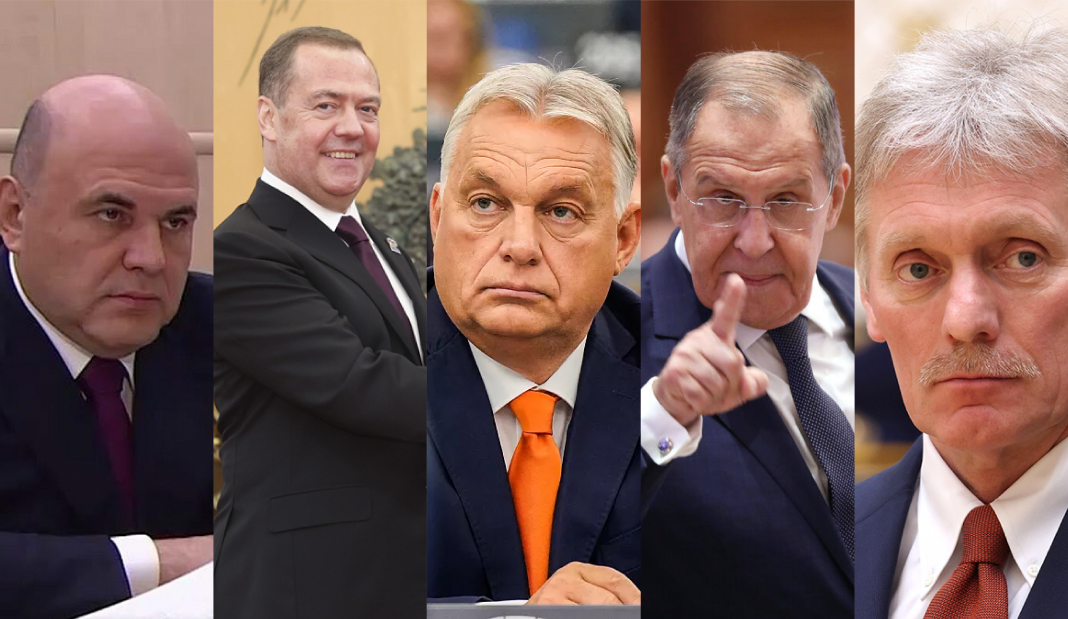In this digest, Ascolta presents a comprehensive analysis of key political, economic and social developments in Russia that have a direct impact on both the country’s domestic processes and international relations. We take an in-depth look at how Russian government decisions, economic developments and public sentiment are shaping the political agenda and affecting domestic stability.
Special attention is paid to the consequences of these events for Russia’s foreign policy, its relations with key international players, and possible changes in the global geopolitical landscape.
This Content Is Only For Subscribers
OFFICIAL EVENT OVERVIEW
- President of the Russian Federation
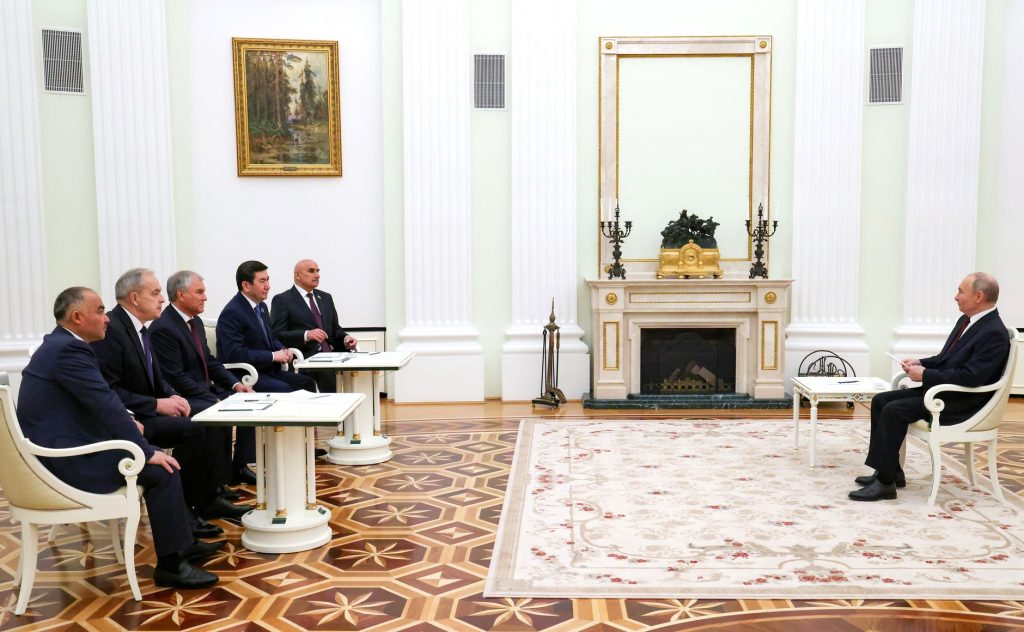
Compared to the previous period, last week was relatively quiet for the presidential vertical of the Russian Federation and at first glance was not distinguished by particularly important events. However, it is important to note that even the conditional period of summarizing the results of the outgoing year for the Russian Federation is accompanied by a number of important changes both inside the country and in the international arena.
On Monday, December 9, 2024, Vladimir Putin met with the chairmen of the parliaments of the CSTO countries in the Kremlin. They discussed issues of legislative support for cooperation in the spheres of defense, crisis response and fighting crime. The President emphasized the importance of preserving the historical memory of the 1945 Victory, inviting CSTO leaders and military contingents to celebrate its 80th anniversary in Moscow on May 9, 2025. The topics of migration and information security, legal regulation of artificial intelligence and robotics, standardization of armaments and strengthening military-technical cooperation were also touched upon. State Duma Speaker Vyacheslav Volodin noted that the parliamentary format of the CSTO is based on consensus, which makes it possible to build trust and make decisions aimed at protecting the interests of all participants in the organization.
On Tuesday, December 10, the Russian president held a meeting of the Council for the Development of Civil Society and Human Rights via videoconference. The meeting was timed to coincide with International Human Rights Day. Putin congratulated the participants on the holiday, emphasized the importance of their work and noted that the protection of citizens’ rights remains a priority for the state. Putin thanked human rights defenders and activists for supporting the participants of the so-called “SWO” and their families, as well as for helping the residents of the new territories. Particular attention was paid to fixing violations of rights by the Kiev regime and informing the world community about war crimes. The President emphasized the importance of investments in human capital and stressed that a quarter of the federal budget for the next three years will be allocated to social programs. Special mention was made of projects to improve the quality of healthcare, education and social support, as well as work to create a “Digital Code”, which should systematize legislation on the protection of human rights in the digital environment. The meeting also discussed issues of migration policy, inclusive education, ensuring the rights of people with disabilities and humanization of the penitentiary system. Proposals were made to create mechanisms for a more equitable distribution of social benefits and to protect the rights of refugees from liberated territories.
On the same day, Putin held a meeting with Indian Defense Minister Rajnath Singh in the Kremlin. The two sides discussed topical issues of bilateral defense and security cooperation, reaffirming the strategic nature of relations between the two countries. Russian Defense Minister Andrei Belousov also attended the meeting.
On Wednesday, December 11, Russian President Vladimir Putin had a telephone conversation with Hungarian Prime Minister Viktor Orban at the initiative of the Hungarian side. During the conversation they discussed topical issues of bilateral trade and economic cooperation, which continues to develop steadily. Particular attention was paid to the implementation of mutually beneficial projects in the energy sector. The sides had a thorough exchange of views on the situation around Ukraine. Viktor Orban expressed readiness to assist in finding a political and diplomatic solution to the crisis, relying on his contacts with a number of Western leaders. For his part, Vladimir Putin assessed the current situation, emphasizing the destructive position of the Kiev regime, which excludes the possibility of a peaceful settlement. In addition, the topic of the worsening situation in the Middle East, particularly in Syria, was touched upon in view of recent developments in the region.
Vladimir Putin also held a conversation with President of the Republic of Uzbekistan Shavkat Mirziyoyev. The two sides discussed further development of relations of strategic partnership and alliance between Russia and Uzbekistan, paying special attention to the implementation of agreements reached during Vladimir Putin’s state visit to Uzbekistan in May 2024. The leaders also exchanged views on the current situation in Syria and around Ukraine.
On the same day, Vladimir Putin held a meeting with members of the Government on the development of the coal industry. Reports were made by Minister of Energy Sergey Tsivilev, Minister of Transportation Roman Starovoit, Minister of Economic Development Maxim Reshetnikov, Minister of Finance Anton Siluanov and Governor of the Kemerovo Region Ilya Seredyuk. Before the main part, they discussed the results of the optimization of procedures for obtaining licenses through the portal “Gosuservices”, the implementation of the project of high-speed highway Moscow – St. Petersburg, as well as measures to train IT-cadres. Maksut Shadaev noted the growth of the industry and the increase in the number of students in IT-specialties, and Sergey Kravtsov reported on the popularization of engineering disciplines in schools. Alexander Kozlov reported on the commissioning of the Antarctic station “Vostok” and its importance for climate studies and subglacial lake research. Having finalized the discussion of current issues, the participants moved to the coal subject.
On Thursday, December 12, amid the heightened resonance around the phone conversation between Vladimir Putin and Viktor Orban, Putin’s press secretary Dmitry Peskov commented on the outcome of the two leaders’ communication. It is important to note that following the conversation, Orban proposed a major prisoner exchange between Russia and Ukraine on Christmas Eve and the declaration of a Christmas ceasefire. Russia, according to Peskov, has never given up on peace talks and is ready to resume them on the basis of the Istanbul Accords of 2022. It was also noted that the Russian Federal Security Service has sent proposals for prisoner exchange to the Hungarian embassy. However, as Peskov noted, the Ukrainian side rejected Viktor Orban’s initiatives, as evidenced by the reaction of Volodymyr Zelensky and his entourage on social media. Nevertheless, Russia supports Orbán’s efforts aimed at achieving a peaceful settlement and resolving humanitarian issues and expects consultations to continue.
On Friday, December 13, Vladimir Putin held an operational meeting with permanent members of the Security Council via videoconference. The meeting was attended by the heads of both chambers of the Federal Assembly, key members of the Government, as well as heads of security and intelligence agencies. The issues on the agenda concerned two topics: the development of the defense industry and the strategy for countering extremism. Minister of Industry and Trade Anton Alikhanov made a report on the state and prospects of the defense industry. He presented measures to increase production capacity in conditions of increased sanctions pressure, as well as plans to modernize enterprises working for the defense sector. Interior Minister Vladimir Kolokoltsev reported on the current situation with extremist activity in Russia and presented a strategy to prevent it. The focus was on identifying radical cells, combating the financing of extremist organizations, as well as measures to strengthen interagency cooperation. Vladimir Putin emphasized the importance of both topics for ensuring national security and instructed the responsible agencies to strengthen their work in these areas. At the end of the meeting, further steps were outlined for the realization of the outlined strategic tasks.
Also on December 13, Putin met with Kazakhstan’s First President Nursultan Nazarbayev at the Novo-Ogaryovo residence. The parties discussed prospects for Russian-Kazakh cooperation, including the development of the Eurasian Economic Union and joint economic projects. The issues of regional security and integration processes in the post-Soviet space were also touched upon. The meeting was held in a warm and constructive atmosphere, emphasizing the high level of trust and partnership between the two countries.
On Saturday, December 14, Vladimir Putin addressed the XXII Congress of the United Russia party, emphasizing its key role in ensuring the country’s sovereignty and security. The President thanked the party for supporting the military, restoring liberated regions and helping civilians. He noted the importance of the “Time of Heroes” personnel program supporting veterans who participated in the special military operation and suggested expanding it at the regional level. Putin emphasized the need to upgrade school infrastructure, promote social projects and strengthen interaction with society through dialogue and support for local initiatives. The President urged the party to work hard, focused on the real demands of citizens, and expressed confidence in its contribution to the development of the country, its sovereignty and unity.
- Ministry of Foreign Affairs of the Russian Federation
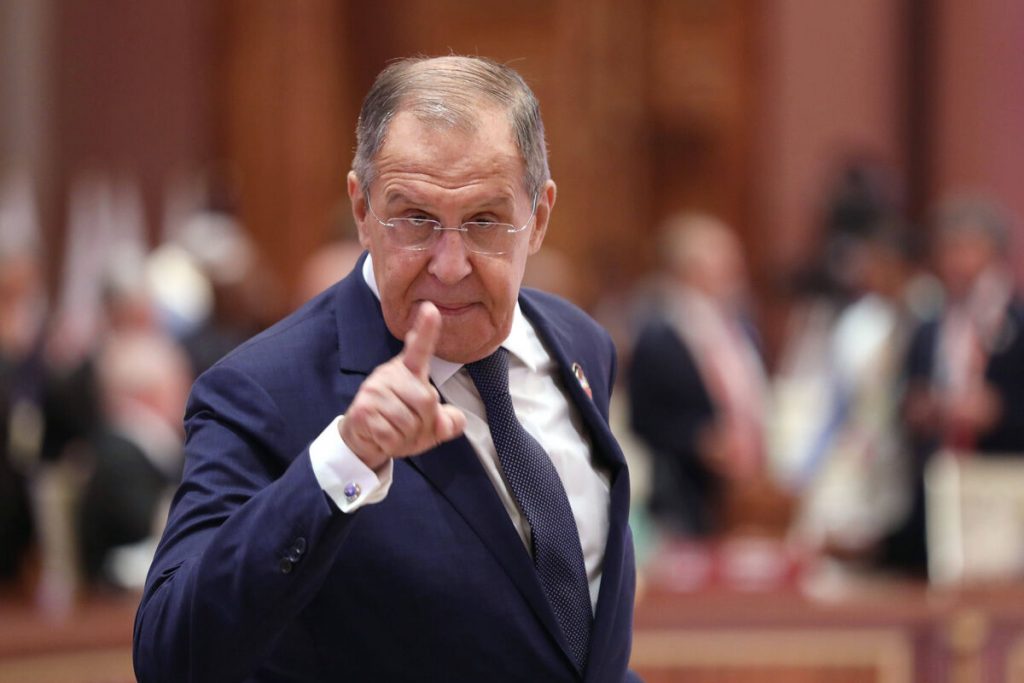
- As a week earlier, the main focus of the Russian Foreign Ministry in the period from December 9-15 was on strengthening communication with the collective West, as well as on shaping a public position on the developments in Syria. Below are the key points worth paying attention to:
- On Tuesday, December 10, Russian Deputy Foreign Minister Sergey Ryabkov held a meeting with Egyptian Ambassador to Moscow Nazih Nagari. The sides discussed topical issues on the international agenda and exchanged views on topics of mutual interest. Special attention was paid to cooperation within the BRICS framework.
- A regular meeting of the Joint Consultative Commission on Disarmament Matters (JCCD) was held in Moscow. Representatives of Armenia, Belarus, Kazakhstan, Kyrgyzstan, Russia, Uzbekistan, and the CIS Executive Committee participated in the discussion. The Republic of Azerbaijan was present as an observer. The participants had a detailed exchange of views on strategic stability issues, focusing on the negative factors affecting its dynamics. The importance and necessity of joint efforts of the CIS countries to strengthen global and regional stability based on the principles of equal rights and indivisible security were reaffirmed. In addition, the Russian side informed about the crisis in the OSCE Forum for Security Co-operation (FSC) related to attempts to question the principle of consensus. The need to strengthen the foundations of the FSC was emphasized.
- On December 10, the United States announced a $20 billion loan to Kiev against guarantees of proceeds from “frozen” Russian assets. The Russian Foreign Ministry called this decision an act of theft that violates international law and undermines confidence in the dollar as a reserve currency. Such actions, according to the ministry, will not save the Ukrainian economy, but will aggravate US problems, including government debt and financial risks. Russia warned that it was ready for a symmetrical response, including the seizure of Western assets on its territory to develop the national economy and infrastructure.
- On Wednesday, December 11, Beijing hosted Russian-Chinese consultations on missile defense and missile security. The two sides discussed strategic stability issues, including intermediate-range and shorter-range missiles, and reaffirmed their intention to strengthen dialog and coordination to maintain global and regional security.
- At the initiative of the Hungarian side, Russian Foreign Minister Sergey Lavrov and Hungarian Minister for Foreign Economic Relations and Foreign Affairs Péter Szijjártó had a telephone conversation. Szijjártó said that Hungary’s proposal for a temporary cease-fire and a large-scale exchange of prisoners, supported earlier by Prime Minister Viktor Orbán, had been rejected by the Ukrainian side, which was confirmed by officials in Kiev. Lavrov noted that such initiatives, including proposals on humanitarian measures and security in the region, have been repeatedly rejected by Kiev. The Russian side reemphasized its commitment to the realistic way of resolving the conflict outlined by Putin. The sides agreed to continue close dialog on various aspects of the crisis, taking into account the opinions and proposals of other states.
- On Thursday, 12 December, at a meeting of the OSCE Permanent Council, Deputy Permanent Representative of the Russian Federation Alexander Volgaryov criticized the growing involvement of NATO and the EU in the Russian-Ukrainian war. He announced plans by a number of NATO countries to introduce their troops into Ukraine under the guise of “peacekeepers” and accused the West of escalating the conflict. Volgaryov emphasized that NATO arms deliveries to Kiev only prolong the war, increasing casualties and destruction, while statements about possible negotiations remain a fiction, given the ban on contacts with Russia imposed by Zelensky’s regime. Moscow considers unacceptable any “freezing” of the conflict that would allow Kiev to restore its military capabilities. Russia will continue to pursue the goals of the special operation and expects that the new OSCE leadership will objectively analyze the causes of the conflict and take into account the interests of all sides.
- The Russian Foreign Ministry has issued an official statement in connection with the terrorist attack in Kabul. It notes that Moscow took with concern the news of the death of Afghan Minister for Refugees Khalil-ur-Rahman Haqqani as a result of the terrorist attack in Kabul on December 11, for which the ISIS-Khorasan group claimed responsibility. The Russian side expects that those involved in the crime will be identified and punished. The upsurge in ISIS activity in Afghanistan is seen as a response to the actions of the Afghan Government to counter the terrorist threat. Russia expresses its solidarity with Afghanistan’s efforts to combat terrorism and is ready to provide the necessary support.
- Sergey Lavrov and UAE Foreign Minister Al Nahyan held telephone talks. The foreign ministers discussed preparations for an international meeting on Syria to launch an inclusive national dialog in accordance with UN Security Council Resolution 2254. The ministers emphasized the importance of preserving Syria’s sovereignty and territorial integrity, as well as the continuity of transitional structures. The sides agreed to facilitate the early implementation of the initiative, discussing the role of UN Secretary General’s Special Envoy Pedersen and continued engagement with other Arab states.
- The Russian Foreign Ministry has issued an official statement on the forthcoming withdrawal of French troops from Côte d’Ivoire. It is important to recall that France is preparing to transfer the largest military base “Por-Boué” in Abidjan under the control of the Ivorian authorities. The transfer is scheduled to be completed by July-August 2025. The reduction of personnel and military equipment at the facility has already begun. Moscow believes that the withdrawal of the French contingent reflects the lack of need for its presence. The Ivorian authorities are demonstrating confidence in self-sufficiency in security, while the population of Francophone West Africa is increasingly critical of the military presence of the former metropolis.
- On Sunday, December 15, it became known that a special flight of the Russian Defense Ministry’s Air Force evacuated some employees of the Russian foreign missions in Damascus, as well as employees of the diplomatic missions of Belarus, DPRK and Abkhazia from the Hmeimim airbase to Moscow’s Chkalovsky airport. At the same time, the Russian Foreign Ministry said that the Russian embassy in Damascus continued its work.
- Government of the Russian Federation
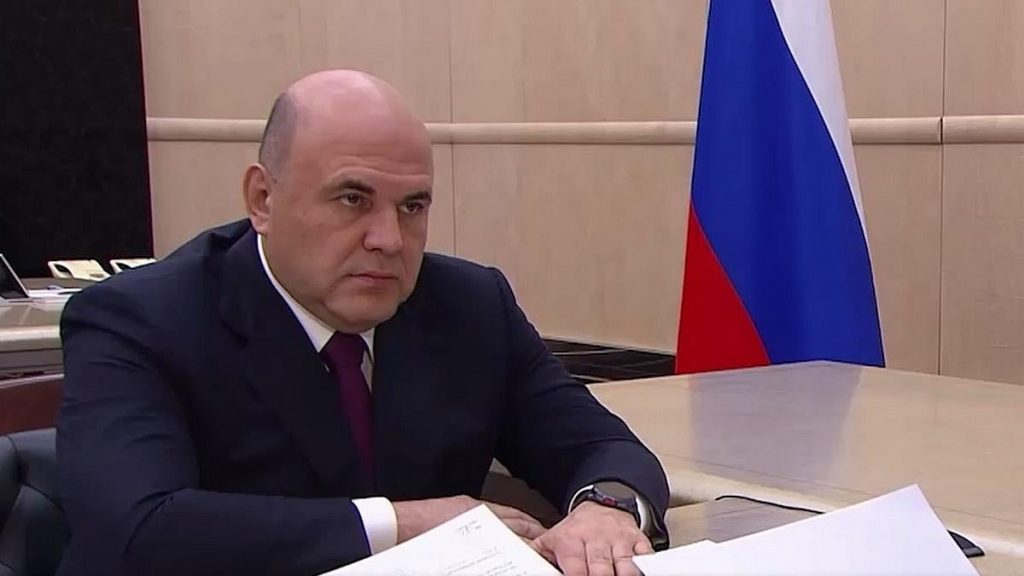
The Russian government worked in a regular mode last week. Below are the main events worth paying attention to:
On Monday, December 9, Mikhail Mishustin held his traditional meeting with deputy prime ministers. The meeting discussed key issues of socio-economic development. Mikhail Mishustin noted the completion of a number of regional programs and announced new measures for the period up to 2030. Among them are projects for Chuvashia, Adygea, Mari El and Kurgan region, for which 6 billion rubles are allocated to improve the welfare of citizens, support industry and agriculture. Support for agro-industrial enterprises, especially in the border regions, was also discussed. It is envisaged to prolong investment loans and allocate over 330 million rubles to support agro-industrial complex in Donetsk, Lugansk and Zaporizhzhya regions in order to save jobs. Tatyana Golikova presented the results of the pilot project on rehabilitation of disabled children. From 2025, the project will be expanded to include new regions. By 2030, comprehensive rehabilitation services will be available in all constituent entities of Russia. Mikhail Mishustin stressed the need for feedback from parents of disabled children to improve the implementation of the program.
On Wednesday, December 11, a meeting of the Government of the Russian Federation was held. The issues of national projects, support for small and medium-sized enterprises (SME), development of rural areas and automotive industry were considered. Prime Minister noted that last week the President of the Russian Federation held a meeting of the Council for Strategic Development, where 19 national projects were discussed. Mishustin emphasized the active role of regions in their implementation. Programs have been prepared for ten regions with a low level of development, four of which have already been approved (Chuvashia, Mari El, Adygea, Kurgan region). From 2025, the rate of insurance premiums for SMEs in the manufacturing sector will be reduced to 7.6%, which will allow enterprises to use the saved funds for development. An additional RUB 14 billion has been allocated for preferential lending programs, including rural mortgages. The total amount of financing in 2024 amounted to over 45 billion rubles. 18.4 billion rubles have been allocated for car lending and leasing. Discounts of up to 25% on domestic cars are provided for doctors, teachers, participants of the Special Military Operation and their families. When buying electric cars, the discount will amount to 35%. The measures taken are aimed at supporting domestic production, rural areas and transportation accessibility.
On Friday, December 13, Moscow hosted a meeting of the Eurasian Intergovernmental Council dedicated to integration within the Eurasian Economic Union. They discussed cooperation in energy, industry, e-commerce, development of transportation corridors and strengthening of the e-commerce market. Mikhail Mishustin noted that for the three quarters of 2024, the GDP of the union grew by 4.5%, industrial production – by the same amount, and retail trade – by almost 8%. He highlighted the importance of subsidizing joint projects from the union budget, modernizing logistics and increasing trade volumes. Special attention was paid to simplifying the declaration of goods bought on online platforms and the beginning of work on climate adaptation. Mishustin emphasized the need to implement the Eurasian Economic Way declaration and create a roadmap. Documents were signed on supporting cooperation projects in industry and setting the date of the next meeting.
OVERVIEW OF IMPORTANT POLITICAL AND ECONOMIC EVENTS IN RUSSIA
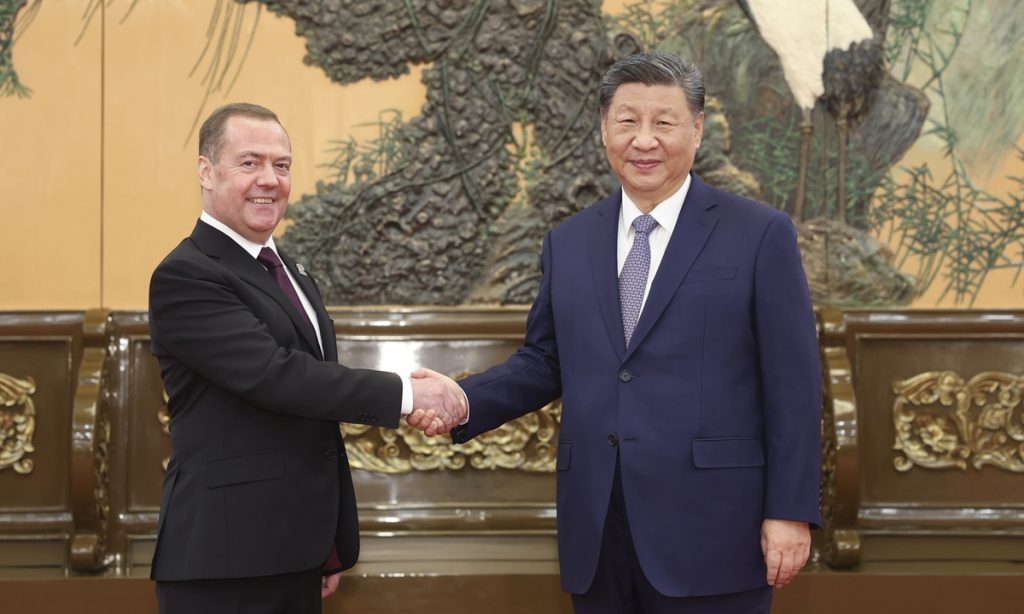
- Dmitry Medvedev’s visit to China
On December 14, 2024, Deputy Chairman of the Russian Security Council Dmitry Medvedev made a working visit to China, where he met with Chinese President Xi Jinping and other senior representatives of the country’s leadership. The talks focused on strategic partnership, deepening economic cooperation and discussing key international challenges, including the situation in Ukraine.
Following the meeting, Medvedev once again emphasized that Russia was ready for a political and diplomatic settlement of the conflict in Ukraine, but pointed to the absolute unpreparedness of Kiev, which, according to him, fully follows the instructions of its Western curators: “The West’s attempts to prolong the conflict at any cost and arm the Kiev regime contradict not only the interests of Ukraine itself, but also global stability. This is a war to the last Ukrainian, planned by the Anglo-Saxons,” Medvedev said. – In this situation, Russia is forced to continue the special operation until all its goals are achieved”.
Medvedev also expressed gratitude to China for its position on the Ukrainian crisis, noting that Beijing’s proposals for a peaceful settlement contain important approaches based on respect for the sovereignty and territorial integrity of countries. However, he added that the prospects for implementing these proposals depend solely on Western countries and Ukraine, which have so far demonstrated a complete lack of desire for constructive dialog.
During the talks, Medvedev and representatives of the Chinese leadership discussed the deepening of economic ties. They touched upon projects in such areas as energy, logistics, digitalization, high technology and agriculture. The parties confirmed their mutual interest in increasing bilateral trade, which could exceed a record 220 billion dollars by the end of 2024.
Particular attention was paid to expanding the use of national currencies in settlements between the countries. According to Medvedev, this is one of the key elements in ensuring the economic security of Russia and China against the backdrop of sanctions pressure from the West.
Medvedev and Xi Jinping reaffirmed that Russia and China will continue to coordinate their actions in the international arena, advocating a multipolar world based on equality of states, non-interference in internal affairs and respect for national sovereignty. The deputy chairman of the Russian Security Council said that coordinated actions by Moscow and Beijing remain a decisive factor in countering the West’s attempts to impose its hegemony.
“China and Russia are showing the whole world that strategic partnership on the principles of mutual respect and benefit is a real alternative to the old world orders based on dictate,” Medvedev said.
2. Statement by Sergey Naryshkin on the possibility of Russia’s soon ending its war against Ukraine
On December 10, the head of the Russian Foreign Intelligence Service, Sergey Naryshkin, said that Russia is at the final stage of achieving the goals of the so-called “NWO”. This statement was made against the backdrop of the intensification of the topic of a possible negotiation process. Naryshkin emphasized that Russia is steadily moving towards fulfilling the tasks that were set from the very beginning of the “operation”, including ensuring the security of the population of the self-proclaimed “LDNR”. An important priority, according to Naryshkin, remains the protection of Russia’s sovereignty and long-term security from the growing threats associated with NATO activity near its borders.
In his speech, Naryshkin emphasized that Russia’s actions are aimed at eliminating sources of tension caused by Kiev’s nationalist and militaristic policies. He noted that the strategy being implemented covers a wide range of tasks aimed at creating a stable world order in the region, where the rights and interests of all peoples will be protected. According to him, Russia is confidently moving towards its goals despite the powerful resistance organized by the Kiev regime with the support of the West.
Naryshkin also criticized the West for its policy aimed at prolonging the conflict. According to him, the USA and its allies continue escalation by supplying Ukraine with weapons, providing financial and political support and thus hindering the establishment of peace. He emphasized that these actions pose serious threats not only to Russia, but also to international stability as a whole. Naryshkin expressed confidence that Russia is able to successfully overcome these challenges thanks to its firm position and consolidation of efforts at all levels.
RESULTS OF THE WEEK: ANALYTICAL REVIEW BY ASCOLTA
The week was marked by preparations for Putin’s “big talk” with the people – the traditional form of communication between the President and the citizens of the Russian Federation. That is why considerable attention was paid to the issues of domestic policy, the social sphere, and the fight against corruption. The news worked to “warm up” citizens’ interest in socio-economic issues.
The United Russia party congress was an important event. “Dmitry Medvedev’s hawkish, militaristic speech at the congress, as well as the replacement in the party’s Supreme Council of a number of representatives of the nomenklatura with representatives of the “military elite” (nine Heroes of Russia, as well as Denis Pushilin and Dmitry Sablin), were intended to show that United Russia is trying to ride the military-patriotic agenda without giving a single chance to national-patriots. Putin spoke even earlier about the need to rotate managerial personnel with an emphasis on those who had gone through the so-called “SWO.” In party terms, this principle has been realized.
At the same time, in terms of foreign policy, the Russian leadership continued to actively communicate with its partners and rivals, both face-to-face (with India and China) and in absentia (with Turkey or the United States). During the week, “peace plans” to resolve the situation around Ukraine were discussed, but Russia demonstrated in every possible way that it does not intend to make any concessions.
Meanwhile, the Ukrainian missile and drone strikes on Grozny and Taganrog have become the most serious problem for Russia, which has already caused an immediate reaction: Russia has decided to resume bombing Ukrainian energy facilities.
The Russian media are also beginning to timidly probe public opinion as to how Russian citizens would feel about a possible de-escalation of the situation in the Ukrainian direction – up to the end of the war.

